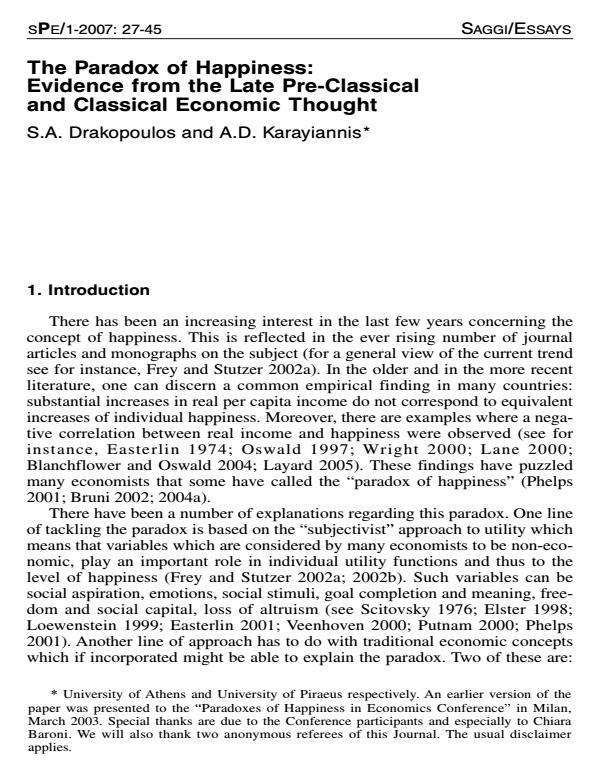The Paradox of Happiness: Evidence from the Late Pre-Classical and Classical Economic Thought
Titolo Rivista STORIA DEL PENSIERO ECONOMICO
Autori/Curatori Stavros A. Drakopoulos, Anastassios D. Karayiannis
Anno di pubblicazione 2007 Fascicolo 2007/1 Lingua Inglese
Numero pagine 19 P. 27-45 Dimensione file 145 KB
DOI
Il DOI è il codice a barre della proprietà intellettuale: per saperne di più
clicca qui
Qui sotto puoi vedere in anteprima la prima pagina di questo articolo.
Se questo articolo ti interessa, lo puoi acquistare (e scaricare in formato pdf) seguendo le facili indicazioni per acquistare il download credit. Acquista Download Credits per scaricare questo Articolo in formato PDF

FrancoAngeli è membro della Publishers International Linking Association, Inc (PILA)associazione indipendente e non profit per facilitare (attraverso i servizi tecnologici implementati da CrossRef.org) l’accesso degli studiosi ai contenuti digitali nelle pubblicazioni professionali e scientifiche
The paradox of happiness: evidence from the late pre-classical and classical economic thought (di Stavros A. Drakopoulos, Anastassios D. Karayiannis) - ABSTRACT: A number of studies have shown that considerable increases in real per capita income do not correspond to equivalent increases of reported individual happiness. This finding has been termed the paradox of happiness. The paper discusses this paradox by drawing from the history of economic thought. More specifically, it argues that the idea of basic and non-basic needs can be an alternative way of approaching this paradox. The basis of this idea can be found in pre-classical economic thought and also in the works of major classical economists. Thus, it is shown that pre-classical and classical views on hierarchical consumption, basic needs and their links with happiness and material consumption might provide an alternative explanation of the happiness paradox.
Stavros A. Drakopoulos, Anastassios D. Karayiannis, The Paradox of Happiness: Evidence from the Late Pre-Classical and Classical Economic Thought in "STORIA DEL PENSIERO ECONOMICO" 1/2007, pp 27-45, DOI: